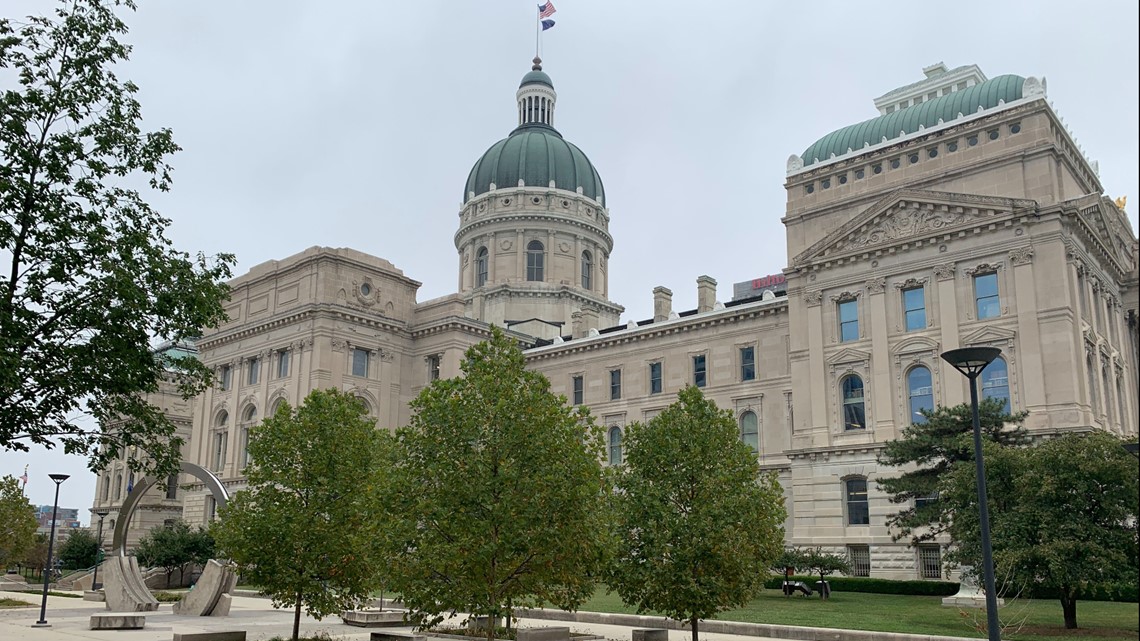INDIANAPOLIS — Indiana’s governor is asking a court to block a new law passed by state legislators giving themselves more authority to intervene when the state’s chief executive declares an emergency.
Lawyers for Republican Gov. Eric Holcomb filed a lawsuit Tuesday in a Marion County court challenging the law that the Republican-dominated Legislature enacted over his veto.
The lawsuit argues that the Legislature is “usurping a power given exclusively to the governor” under the state constitution to call lawmakers into a special session.
Republican legislators pushed the bill after months of criticism from some conservatives over COVID-19 restrictions that Holcomb imposed by executive order.
However, Republican legislative leaders praised the governor’s actions during the pandemic but say the bill is meant to allow the input of lawmakers during extended emergency situations. For things like the stay-at-home orders, the mask mandates and the business restrictions, some Republicans lawmakers say they should have more of a say on such things in a public emergency.
“I took an oath to uphold the Constitution of the State of Indiana and I have an obligation to do so. This filing is about the future of the executive branch and all the Governors who will serve long after I’m gone,” Gov. Holcomb said in a statement to 13News.


Holcomb vetoed the bill on April 9 and issued a letter explaining his reasons why. The Legislature voted to override that veto days later.
Attorney General Todd Rokita said his office should resolve a dispute between two branches of state government. The statement from Rokita's office reads:
Under Indiana law, only the attorney general may determine and advocate the legal position of all of state government. And that exclusive authority exists for good reason—so that Indiana speaks in court with a single legal voice. In creating the Office of the Attorney General, the General Assembly resolved precisely this sort of situation—where two parts of the state government disagree on a legal question. And as the Indiana Supreme Court recognized more than forty years ago, the Attorney General exists to resolve such disagreements and “to establish a general legal policy for State agencies.” State ex rel. Sendak v. Marion Cty. Superior Ct., 268 Ind. 3, 6–7, 373 N.E.2d 145, 148 (1978). In declining to authorize outside counsel to represent the Governor here, the Office of the Attorney General is not beset by a conflict of interest but is instead fulfilling its core purpose—setting a single, unified legal position for the State as a whole.
The Indiana Supreme Court has also held that no state agency or office holder may file a declaratory judgment action. Allowing state agencies to resort to the judicial system for review of every statute passed would foster legislative irresponsibility and unnecessarily overburden the courts into issuing, essentially, advisory opinions.
The Indiana Democratic Party issued the following response to the bill:
"The Indiana Democratic Party has spent the last 100 days helping President Joe Biden pass the American Rescue Plan and get Indiana safely out of COVID-19. Looks like the Indiana Republican Party is continuing with their intraparty civil war that's done nothing but harm the state in the process."



